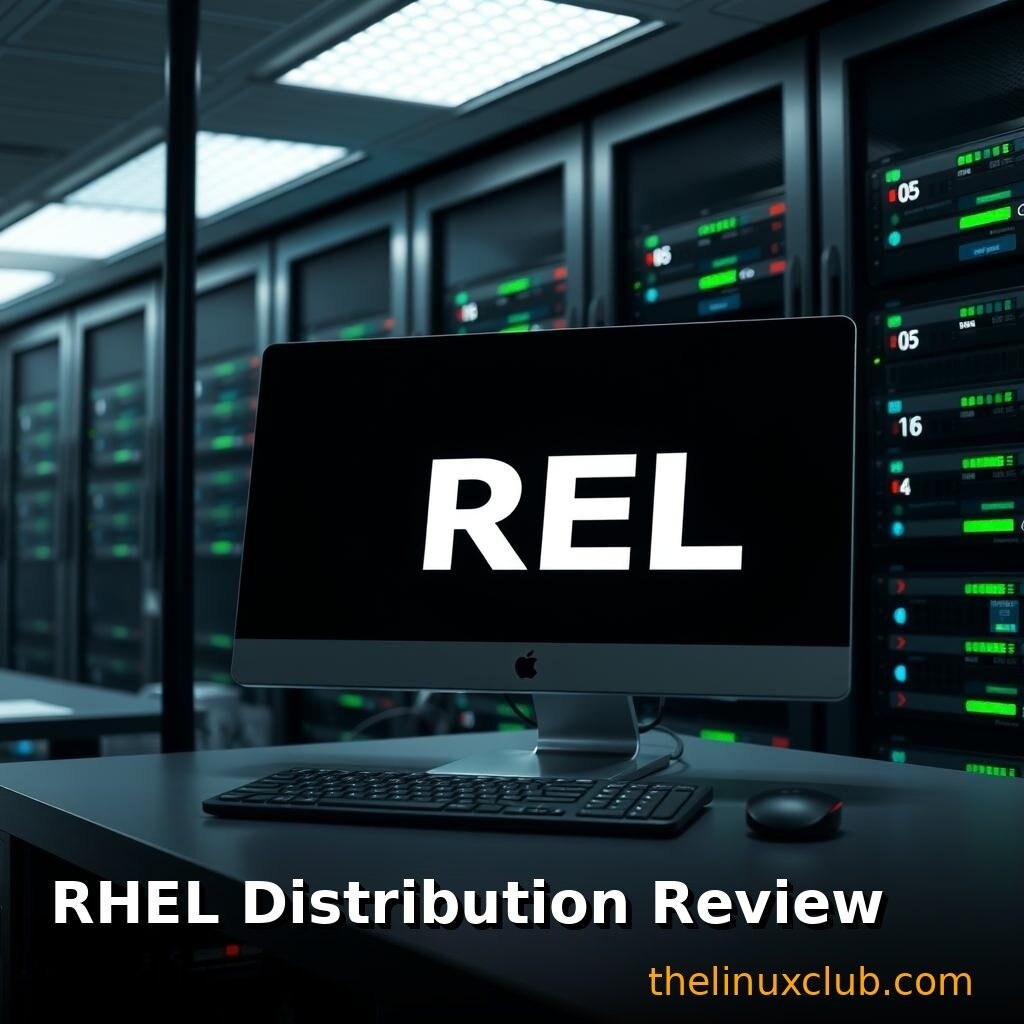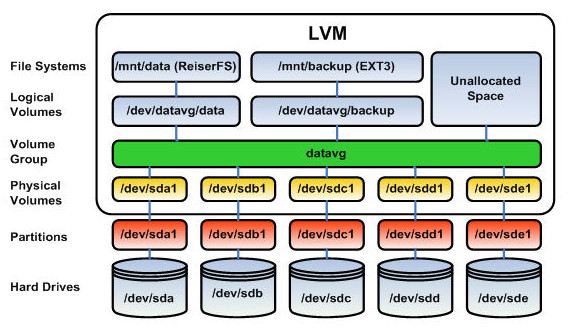RHEL Linux Distribution Review

🎯 Key Takeaways
- Key Features and Enterprise Capabilities
- RHEL Versions and Lifecycle
- Subscription Model and Pricing
- Installation and Management
- Security and Compliance
📑 Table of Contents
Red Hat Enterprise Linux (RHEL) is the leading enterprise Linux distribution, developed and maintained by Red Hat (an IBM subsidiary). Known for its stability, extensive support lifecycle, security certifications, and commercial backing, RHEL powers critical infrastructure worldwide from Fortune 500 companies to government agencies. With 10-year support cycles, comprehensive ecosystem, and industry certifications, RHEL represents the gold standard for enterprise Linux deployments.
📑 Table of Contents
- Key Features and Enterprise Capabilities
- Core Enterprise Features
- RHEL Versions and Lifecycle
- Support Phases
- Subscription Model and Pricing
- Installation and Management
- Installation Options
- Package Management with DNF
- Security and Compliance
- Security Features
- Compliance Frameworks
- RHEL vs Alternatives
- RHEL vs CentOS Stream
- RHEL vs Ubuntu
- Frequently Asked Questions
- What is the difference between RHEL and CentOS?
- How much does RHEL cost?
- Can I use RHEL for free?
- What support levels does RHEL offer?
- Is RHEL difficult to learn?
- How long is each RHEL version supported?
- Can I run RHEL in the cloud?
- What certifications does RHEL have?
- How does RHEL differ from Fedora?
- What is Red Hat Satellite?
- Conclusion
Key Features and Enterprise Capabilities
RHEL provides enterprise-grade stability, security, and support. Each major release receives 10 years of support with optional Extended Life Cycle Support extending to 13+ years. Red Hat offers SLA-backed support with 24/7 availability, security certifications (Common Criteria, FIPS 140-2), compliance frameworks (HIPAA, PCI-DSS), and predictable release cycles. RHEL integrates with Red Hat’s ecosystem including OpenShift (Kubernetes), Ansible (automation), and Satellite (management).
Core Enterprise Features
- 10-Year Support: Full support for entire major version lifecycle
- Commercial Support: 24/7 expert assistance with SLAs
- Security Certifications: Common Criteria, FIPS, STIGs
- Compliance: HIPAA, PCI-DSS, SOC compliance ready
- Stability: Rigorous testing and quality assurance
- Hardware Certification: Certified on major server vendors
- Red Hat Ecosystem: Integration with Red Hat portfolio
- Kernel Livepatch: Update kernel without rebooting
RHEL Versions and Lifecycle
RHEL follows predictable major releases every 3-4 years. RHEL 9 (current) released May 2022 with support until May 2032. Each major version receives minor releases every 6-12 months adding features while maintaining compatibility. Extended Update Support (EUS) provides extended support for specific minor versions. Red Hat’s lifecycle guarantees enable long-term planning for enterprise deployments.
Support Phases
- Full Support (6 years): All updates, enhancements, security fixes
- Maintenance Support (4 years): Security and critical bug fixes
- Extended Life Cycle Support: Additional years available
Subscription Model and Pricing
RHEL uses subscription-based licensing. Subscriptions include OS license, updates, support, and access to Red Hat Customer Portal. Developer subscriptions are free (up to 16 systems). Standard subscription costs approximately $349-$1,299 per system annually depending on support level. Cloud instances include RHEL licensing in hourly rates. Organizations can also use CentOS Stream or Rocky Linux for cost-effective alternatives.
Installation and Management
Installation Options
# Download from Red Hat Customer Portal
# Requires subscription or free developer account
# Installation methods:
# - Anaconda graphical installer
# - Kickstart automated installation
# - Cloud images for AWS, Azure, GCP
# - Container base images
# Register system after installation
sudo subscription-manager register --username your-username
sudo subscription-manager attach --autoPackage Management with DNF
# Update system
sudo dnf update
# Install package
sudo dnf install package-name
# Enable repository
sudo subscription-manager repos --enable=repo-name
# List available repositories
sudo dnf repolistSecurity and Compliance
Security Features
- SELinux: Mandatory access control enforcing by default
- FIPS 140-2: Cryptographic module validation
- Security Advisories: Timely CVE patches with CVSS scores
- OpenSCAP: Security compliance scanning
- Audit Framework: Comprehensive system auditing
Compliance Frameworks
RHEL supports compliance with major standards: HIPAA for healthcare, PCI-DSS for payment processing, FISMA for government, SOC 2 for service organizations. Red Hat provides documentation, tools, and guidance for compliance requirements.
RHEL vs Alternatives
RHEL vs CentOS Stream
RHEL has 10-year support with commercial backing; CentOS Stream has shorter community support. RHEL receives extensive testing; Stream is upstream preview. RHEL includes certifications and support SLAs; Stream is community-supported. Choose RHEL for production; Stream for development/testing.
ubuntu">RHEL vs Ubuntu
RHEL offers 10-year lifecycle vs Ubuntu’s 5-year LTS. RHEL focuses on enterprise with certifications; Ubuntu serves broader market. RHEL uses RPM/DNF; Ubuntu uses DEB/APT. Both are excellent; choice depends on ecosystem preference and support needs.
Frequently Asked Questions
What is the difference between RHEL and CentOS?
RHEL is the commercial, supported distribution with 10-year lifecycle and certifications. CentOS Linux (discontinued) was a free RHEL rebuild. CentOS Stream is now the upstream for RHEL, providing preview of upcoming RHEL features. For production, RHEL offers stability and support; for development, CentOS Stream or Rocky Linux work well.
How much does RHEL cost?
Standard subscriptions range from $349-$1,299 per system annually depending on support level (Standard vs Premium) and usage (physical, virtual, cloud). Developer subscriptions are free for up to 16 systems. Educational and non-profit pricing available. Cloud instances include RHEL licensing in provider charges.
Can I use RHEL for free?
Yes, through Red Hat Developer program providing free subscriptions for development use (up to 16 systems). Also, small production uses qualify for free subscriptions. For broader free use, consider CentOS Stream, Rocky Linux, or AlmaLinux as RHEL-compatible alternatives.
What support levels does RHEL offer?
Self-Support (updates only), Standard (business hours support, next-day response), Premium (24/7 support, 1-hour critical response). All include access to Red Hat Customer Portal, knowledge base, and updates. Premium adds faster SLAs and dedicated resources.
Is RHEL difficult to learn?
RHEL is Linux, so basic Linux knowledge applies. For administrators, Red Hat offers excellent training (RHCSA, RHCE certifications). Documentation is comprehensive. If you know CentOS, Fedora, or Linux basics, RHEL is straightforward. Red Hat training is industry-recognized for enterprise Linux skills.
How long is each RHEL version supported?
Each major RHEL release receives 10 years of support: 6 years full support, 4 years maintenance. Extended Life Cycle Support can extend this further. For example, RHEL 9 (released 2022) supported until 2032. This predictability enables long-term infrastructure planning.
Can I run RHEL in the cloud?
Yes, RHEL is available on all major cloud platforms: AWS, Azure, Google Cloud, IBM Cloud. Cloud providers offer RHEL with pay-as-you-go pricing including license. You can also bring your own RHEL subscription (Cloud Access program) to cloud environments.
What certifications does RHEL have?
RHEL is certified for Common Criteria EAL, FIPS 140-2 cryptographic validation, various STIGs (Security Technical Implementation Guides), and hardware certifications from major vendors (Dell, HP, Lenovo, Cisco). These certifications are required for government and regulated industries.
How does RHEL differ from Fedora?
Fedora is community-driven, cutting-edge, with 6-month releases and 13-month support. RHEL is enterprise-focused, conservative, with multi-year releases and 10-year support. Fedora is upstream for RHEL—technologies mature in Fedora before inclusion in RHEL. Use Fedora for desktops/development; RHEL for enterprise production.
What is Red Hat Satellite?
Red Hat Satellite is a systems management platform for deploying, configuring, and maintaining RHEL systems at scale. It provides patch management, provisioning, subscription management, configuration management, and reporting. Essential for organizations managing hundreds or thousands of RHEL systems.
Conclusion
Red Hat Enterprise Linux represents the pinnacle of enterprise Linux distributions, providing unmatched stability, support, and certification for mission-critical deployments. With its 10-year support lifecycle, comprehensive security features, extensive hardware certifications, and Red Hat’s engineering expertise, RHEL powers the infrastructure of most Fortune 500 companies and critical government systems worldwide. While cost and complexity exceed community distributions, the value proposition for enterprise deployments—risk mitigation, support availability, compliance assistance, and long-term predictability—makes RHEL the definitive choice for organizations requiring enterprise-grade Linux.
Official Website: Red Hat Enterprise Linux
Developer Program: Red Hat Developers
Documentation: RHEL Docs
Was this article helpful?
About Ramesh Sundararamaiah
Red Hat Certified Architect
Expert in Linux system administration, DevOps automation, and cloud infrastructure. Specializing in Red Hat Enterprise Linux, CentOS, Ubuntu, Docker, Ansible, and enterprise IT solutions.


